In on the Conversation: EC Synkowski
Introduction
I’ve been working with EC Synkowski for over a decade, and in that time I have leaned heavily on her to help me interpret the Wild West of shifting nutritional advice. I’ve been playing EC’s 800-gram game for a spell now and it has become the cornerstone to my daily nutritional habits. So when EC popped out to the West Coast for a conference, I grabbed her for a quick chat. Enjoy!
Full Transcript
Kelly Starrett: Welcome back to the Ready State. I’m here with a very good friend. We really grew up together, to be honest. We were like, “Hey, teenagers in squatting, and we’re friends.” EC Synkowksi, OptimizeMe Nutrition.
EC Synkowski: You got it.
Kelly Starrett: The reason we’re having EC on, is that there’s a lot I want to talk about around the nutrition. And just hang on. I feel like nutrition is like a third rail. It’s worse than politics. It’s worse than religion.
EC Synkowski: Kind of a minefield.
Kelly Starrett: And everyone is so special, that we all need different prescriptive things based on, am I a runner? Am I a cyclist? Right? It’s very confusing. It’s one of the reasons that I have always said, “Oh, yeah, yeah. I have these expert friends who are really good at talking about nutrition. Why don’t you talk to them?” But one of the reasons we have to talk about it at a simple level, not even about body composition, or metabolic health, forget that. Is that you cannot heal if your tissues are crap.
EC Synkowski: It’s true.
Kelly Starrett: If your tissues are crap, they do not handle large loads, right?
EC Synkowski: Correct.
Kelly Starrett: So if we peel back this biopsychosocial model, and we really are talking about stress and hydration and sleep, and really are people members of a tribe, it’s really difficult to pull food out of that.
EC Synkowski: Yeah, totally. It’s huge.
Kelly Starrett: Let me ask you this first question. Why did you decide to step into the sharkinfested waters? Because with full disclosure here, your teachings, thinking around nutrition, has been the most profound thing that’s happened to me and around nutrition in a long time.
EC Synkowski: Thank you. Awesome.
Kelly Starrett: How and why did you get here?
EC Synkowski: I actually don’t know why I ultimately chose nutrition. I did do a lot of background in biochem engineering and biology and stuff like that. So I think there’s something that’s interesting about it to me. It’s so complex. But I do love the idea of bringing simplicity to a complex problem.
EC Synkowski: And whether or not that’s with nutrition or other things I’ve done over the years in my experience, I just like that idea of, how can we make this simple, and what really moves the needle? If people can pay attention to one or two things, what would those be? So, nutrition’s a great way [crosstalk 00:02:08].
Kelly Starrett: Apparently I need to have someone walk around and slap things out of my hand, and cook for me. When Juliet and I talk about winning the lottery, the one thing we’re going to do is we’re going to have a private chef.
EC Synkowski: I can’t wait till that’s my life.
Kelly Starrett: That’s the life. You just did a TEDx.
EC Synkowski: I did.
Kelly Starrett: Not a TEDx, a TED talk.
EC Synkowski: TEDx. TEDx.
Kelly Starrett: TEDx. You did a TEDx talk two days ago.
EC Synkowski: Correct.
Kelly Starrett: And what did you talk about?
EC Synkowski: I talked about the 800 Gram Challenge. And the whole concept was, how do you make nutrition simple? And really, I talked about elegance in nutrition.
Kelly Starrett: Okay. You just said 800 Gram Challenge.
EC Synkowski: Correct.
Kelly Starrett: What is 800 Gram Challenge? What are you trying to do here?
EC Synkowski: Yeah, you eat 800 grams by weight of fruits and veggies each day. Doesn’t matter if it’s cooked, canned, frozen or fresh. And also, doesn’t matter which fruits or veggies you want to do. Potatoes, beans, tomatoes, you can do that.
Kelly Starrett: Whoa, you’re freaking me out. You’re saying that if I eat 1.74 pounds of beans a day, I can do that?
EC Synkowski: You can, and it’s not too many carbohydrates. You could do it all on fruit. It’s not too much sugar. It’s actually going to be way better for you than any other processed food that you could eat.
Kelly Starrett: One of the things that started, when you first started doing this and we’ll get into this, is that you were like, “Oh you want to eat apples?”
EC Synkowski: Great.
Kelly Starrett: Because how many days in a row are you going to eat that many pounds of apples?
EC Synkowski: That’s an interesting point, too. So people often ask, “Well, what if I want to do this all on white potato?” I’m like, “Great,” because one, I also know that they’re not going to do it forever, right? Because it’s too monotonous.
Kelly Starrett: Let me know how that goes for you.
EC Synkowski: Right. And so when people have… What I like about this is you have to make it work for your life. You’ve done some traveling, I know. Sometimes you’re in an airport, sometimes what you have available are apples and bananas. Great. It’s your apples and bananas day, you know?
Kelly Starrett: Okay, I’m going to be totally inappropriate here, but one of my… I have a lifter friend who says he watched those shows about really, really people who’ve lost control of their lives, and they can no longer be in their house because they’re super morbidly obese. And he’s like, apples and bananas are not the problem.
EC Synkowski: No, they are not.
Kelly Starrett: Okay, so one of the things, we’ll back in here for a second, because you’re saying, “Let’s shoot for this minimum of trying to get more fruits and vegetables. And even vegetables or fruits, and you didn’t even say fruits and vegetables because that sounds better, right? I had taken a lot of fruit off the table, because I was like, “This is going to… These blueberries are going to be the limiting factor in my human performance.”
EC Synkowski: I… Yes, unfortunately, I did the same.
Kelly Starrett: Why did we get there?
EC Synkowski: I have no idea. I’d love to know who started the fruit is sugar thing. It’s… I actually almost think it’s negligent. I mean you… When you start looking at what’s really in people’s diets, it’s like blueberries. Oh my gosh, please encourage people to eat this, from a caloric standpoint. But then also from a micronutrient standpoint, tissue health, there are so many phytochemicals. I mean I have no idea how we got to the fruit is candy thing.
Kelly Starrett: A pound of melon is 30 grams of carbohydrate.
EC Synkowski: Yeah, some were 35.
Kelly Starrett: A pound of melon.
EC Synkowski: I know.
Kelly Starrett: Let me know how you feel after eating. Like you feel… Like I need to go to town… I’m gonna eat a pound of candy fruit. Sport candy is really what it is.
EC Synkowski: That’s a great word for it.
Kelly Starrett: Sport candy, Sport CandyTM. Here’s what I think the question is, how did you arrive? Because your central tenant is saying, and there is definitely a movement towards plant-based, right? From an ecological perspective, we need to eat more plants. Michael Pollan’s talked about eating more plants, and it gets confusing because people are like, “What about the plant paradox, and what about lectins,” and all these things. But you’re first to say is, “Hey, let’s control, we’re pretty good in the human performance realm, we’re pretty good about protein, but we’re not doing a good job of plants and fruits.
EC Synkowski: Yeah, and I’m going to use a pun. I think it’s kind of low hanging fruit to start with. And there are a few reasons why it’s so powerful. One, I’m giving them choices. I’m not just saying you have to eat chicken or some sort of protein source. They have some choices and a lot of fruits and vegetables, and then with that is kind of the thing that you pointed out with the melon. It’s such a low caloric density, so they’re feeling really full on this pound of melon, but they’re eating fewer calories, so then they’re seeing weight loss and stuff like that.
EC Synkowski: So I can get some results and some buy-in with them having autonomy and choices very quickly. I don’t mind if people start with protein. I think it is an underrepresented macronutrient generally, but I don’t get as easy buy-in. And so that’s why I’ve kind of tackle it from this fruit and vegetable angle.
Kelly Starrett: You know, one of the things that I think, I came of age in the Zone. But in college, my girlfriend’s parents were all about the Zone, early on.
EC Synkowski: Yeah, you’re old school.
Kelly Starrett: Yeah. This is like 94, 95, so or early Zone. And I think that was the first time where I was like, “You mean this bag of rice cakes isn’t really good to eat?” And my girlfriend at the time was like, “Maybe not, right?” But one of the things that happened for sure is that I suddenly saw the world of things I can’t eat. And one of the things that… You know, food is complex in terms of our relationships and role in society. Our relationships with family, how we self-medicate. And really, it’s about self-medication. People trying to make themselves feel better.
EC Synkowski: Totally.
Kelly Starrett: One of the things that has been profound for me about having to eat this much fruits and vegetables, is that I’m always feeling like, “Oh my God, I have to eat more.” And that has been a really transformational thing. Not like, “Well, I’ve eaten too much.” But for the first time in a long time, I’m like, “I’m going to have to eat two more bell peppers.” And your goal is to try to get six vegetables and different kinds, or four?
EC Synkowski: That’s one of the things when people ask, more to optimize it. Honestly, in the beginning, I’m just like, “Whatever you want. You want to do 800 grams of strawberries, please do it.” But when people want to know, okay, well what’s ideal? The more you can do, the better. So if somebody really wants to go for 10, great, but we want to take a longterm view of this, that if you have your apples and bananas day at the airport, the next day you’re going to try to mix it up even more. But I do think a day to day six is a good kind of check-in point, especially if the 800 Gram challenge has already become routine. Hey, can you get six different things in? What we’re doing there is getting more vitamins and minerals, we’re getting more different fiber types. We’re also getting more phytochemicals. So the broader net you can cast, the better. And since I like the six, but it’s not like this is your perfect number forever.
Kelly Starrett: And the number for me, honestly as a reference, I try to do eight.
EC Synkowski: You try to do eight.
Kelly Starrett: Eight by eight has the symmetry. And of course, I love it. But you know, one of the things that Juliet and I have always, and we took this from John Berardi long time ago, was trying to have a vegetable for breakfast.
EC Synkowski: Oh cool.
Kelly Starrett: We would have a vegetable product, that could be a veggie omelet. Just because we felt like we were… As a busy person, it was really difficult for me to actually get enough vegetables and fruits, especially if I ate some protein and had a coffee, then I roll into my day and if I’m not planned, it’s easy to get behind. And then I’m trying to do it on the back end, so it’s salad and I’m like, “Okay, here’s dinner time, and time to shove it down.”
Kelly Starrett: But I’ve started grabbing peppers and carrots and tossing them in, and it’s been so much easier for me to have a gigantic salad for breakfast. And then what’s really interesting now is that I am feeling like I have to add carbohydrate back because I’m like, “Oh my God, I’m full, and I haven’t… And I got a two-hour bike ride, I’m going to have to fuel differently.” And so it’s really changed my brain around this.
EC Synkowski: Oh cool. Yeah, I do think too, there’s been kind of this backlash not just with fruit but with carbohydrates. So when people first… A lot of people when they first do the 800 Gram challenge, they try to do it on spinach and broccoli. And I’m like, “Okay. A. Lot of volume B. Yeah, if you are a larger athlete, or do have a high volume, let’s use some yam and yucca and taro, it’s okay.” And there’s some nutrient value there too. So just trying to mix it up, I think is huge. And you don’t have to stay low carb with it.
Kelly Starrett: No, there’s definitely a trend right now around plant-based athletes.
EC Synkowski: Okay.
Kelly Starrett: I feel like, and I don’t know anything except sort of what I know, but it seems like there’s a lot of good options for plant-based proteins powders.
EC Synkowski: Yeah. More so, yeah.
Kelly Starrett: But it still seems like along with just being just plant-based or just being just meat-based, I sometimes I’m missing key things that I have to add back in. Is that the right representation sometimes?
EC Synkowski: I think so. I think you can do it plant-based, but of course, when you’re only using plant-based, the problem is that to get your protein, you also are typically getting a lot of carbohydrate. Now that’s where the protein powders come into play. But to get the kind of complete array of amino acids, you want to be mixing up those. So you wouldn’t want to do all of your protein sources from just being protein powder. You’d want to mix that up.
EC Synkowski: And so that’s the problem with a plant-based diet, is you have to make sure you’re getting enough variety, and not too much carbohydrates relative to your protein needs. But I do think you can also still do animal protein within the context of a healthy diet. It’s just that as that climbs a lot, you want to make sure that it’s still within the context of having a good amount of plant matter.
Kelly Starrett: And you’re not just saying like, eat the sashimi chicken breasts at all. Is a wider variety of protein sources I can, to match the variety of the rainbow.
EC Synkowski: You always have to remember that. I think this is one of the things that gets confusing about nutrition. When you eat beef, or when you eat, I don’t know, pick any fruit or vegetable. It’s not just about getting protein. Beef has B12 and B6, and there’s all this whole array of nutrients that you need across the 40 plus essential nutrients. And so our whole foods have this mixture of all of them. And you want to be filling up all the little buckets across all your different choices, and by having that variety of fruits and vegetables, and whole food protein sources, that’s how you do it.
Kelly Starrett: If I’m starting, I’ve seen on your Instagram you’re like, yeah you can start at 500 grams.
EC Synkowski: Yeah.
Kelly Starrett: You can start at 600 grams. Why weighing and measuring? Because that sometimes feels like initially, I had control. You know I think people want to push back, because they… Their experience of having to weigh three ounces of chicken breasts, one slice of bread really was dispiriting, right? Because it really felt-
EC Synkowski: What a great word.
Kelly Starrett: That’s how that felt to me. And you feel like, why is getting… Being aware of the number of grams important, in terms of getting people to eat more plants and fruits?
EC Synkowski: There are two reasons for weighing and measuring. One is really understanding caloric density. It goes back to your whole blueberries comment, you know it’s like, “Oh wow that much blueberries only has a hundred calories, or whatever.” That you actually going through that process to learn, “You know, what my problem in my diet is not the cucumber. It’s not the baby carrot. It’s not the tomato, it’s the cronut that I might have just had this morning. Delicious.”
Kelly Starrett: Fantastic.
EC Synkowski: It might have been pizza, it might have been beer, whatever. And so that happens through doing. But the other reason with the weighing and measuring, especially with the 800 Gram Challenge, and I mentioned this in the TEDx talk, just saying that you’re going to eat more fruits and vegetables isn’t good enough.
Kelly Starrett: No, didn’t do it for me.
EC Synkowski: You need a standard. You need a standard to hold yourself accountable every day. And this is even true with me. I have a good diet. I’m very consistent with it, but it’s being honest with yourself, and daily checking in every day. So to have a number there is very useful.
Kelly Starrett: One of the reasons this has really stuck with me, I mean, we know John Berardi, we’ve spoken Zone. I have my super like hardcore keto friends, right? It’s worked for them, but that… When I have done blood paneling, that stuff doesn’t… I can’t process that fat the way everyone else can. Like I know for a fact my genetics do not support massive amounts of fat. It just doesn’t work, and it doesn’t work here either, right? I get the disaster pants.
EC Synkowski: Extra credit.
Kelly Starrett: Yeah. No, I was not the extra credit. I was just saying like adding a bunch of,
EC Synkowski: GI stress.
Kelly Starrett: GI stress. So you know, one of the things that I… It’s really difficult to prove, or to show that eating vegetables and fruits is detrimental and I don’t have to add in all these other… You know, we were listening to the radio, and there’s a GNC ad went on, and the guy’s like, “I know I should eat better, but I hate kale. So I take this vitamin.” And I feel like that’s really what a lot of our current nutrition solutions are. They’re, I have an incomplete eating pattern because I don’t have a habit, or I don’t know that what’s available to me, and then I have to supplement or add and all these things back in.
EC Synkowski: Yeah. I want to add onto that kale point though too, because I constantly get the question about like powdered greens and anything that’s sort of like a derivative of just eating the kale. And I’m not against powdered greens per se, and I don’t even think a kale supplement is going to hurt you. But the problem is, most people also want weight control. And so by literally chewing the kale and filling yourself up and being full, is how you then also lose weight, because you’re having at this lower caloric density, but yet you have this feeling of fullness, right?
Kelly Starrett: And I need to feel full. I think I just texted you, and I was like, “I just ate a whole bag of salad, and gorged myself, and I felt it was like, ha ha.” You know, I was like, “Oh, I just crushed that and I’ve got a salad baby.” No one says that anymore, right? Salad baby.
EC Synkowski: That’s right. And that’s the problem with all these like supplements and powdered greens, is that almost always those people also have goals for weight control. So we’re not going to get there because when you take a pill, you’re not full. When you take a powdered green, it doesn’t fill you up. You know, you drank it in like two ounces of water or whatever it is. You want to have a solution that is giving you the nutrients, but is also helping you feel satiated and full. And so you don’t reach for the cookie.
Kelly Starrett: That’s got to be a component of it, right?
EC Synkowski: And that’s a huge component, and that’s why dried fruit isn’t allowed on the 800 Gram Challenge, in the sense that you can still eat it, but it doesn’t count towards your grams. I don’t know if you’ve ever had dried mango, but you can eat an entire bag,
Kelly Starrett: I think people call crack in a bag, is what they call it, right?
EC Synkowski: And that’s the thing, is you end up eating 27 mangoes, but you’re not full, but you would never have eaten that with the water weight included.
Kelly Starrett: There’s a really interesting phenomenon that’s happened around hydration, that that our bodies are highly tuned to needing water, and there’s a big thirst drive. It turns out that giving someone an IV is actually not as effective as drinking water.
EC Synkowski: Okay, yeah.
Kelly Starrett: And which leads me to believe that eating is one of those fundamental things, not taking a supplement, not taking a hyper pill form. We’re seeing now that the revolution in performance nutrition for endurance athletics, is to eat whole foods. Eat a sandwich, eats things that are easily digested and tasty. And I feel like this is, you know, the whole pendulum has swung back, that a bar is an emergency, because I’m afraid of not eating for a minute, even though that’s probably okay. But on the other hand, what you’re saying is, first and foremost is, “Hey, food can be… Let’s make food the basis of how we’re managing, and then we can turn up and turn down.” Because my understanding is you really haven’t aimed me at some kind of caloric goal based on my size and weight. Like that’s really been profound for me, because I’m like, “Oh I’ve got to eat 1800 calories, or 2,600,” and I even know what that is. Especially if it’s a little bag of Peppermint Patties, right?
EC Synkowski: Totally. And that’s some of it. I have to say that part of the design here was to take some of the psychology out of nutrition, because I think it’s a frustrating and a point of failure for a lot of people. So I didn’t want them having these specific targets. Yet when we’re at the point of optimization, we can layer on, “Hey, I want you to hit this many carbs with it,” or “I want you to hit this caloric load with it.” But just to get some buy-in and success with nutrition, it was take that away, and let the person really have kind of control of what they want to eat. I also know though, that when you do typically mixed fruits and vegetables, it ends up being about five, 600 calories. So I also know it’s going to be at a way less caloric load than what they’re eating across the day anyway, regardless of the choices they’re making.
Kelly Starrett: So they’re… If I’m… Because I don’t eat this way to change my weight.
EC Synkowski: Correct.
Kelly Starrett: I eat this way because-
EC Synkowski: Well, you can, but you’re doing it right.
Kelly Starrett: So, I mean… But that’s because I seem to weigh the same no matter what. Apparently in the internet and always, it’s weird. But the idea here though, is if I do want to lose my mass, changing my macro nutrient combination, if I want to change my body composition… I think you’ve said this, I sometimes do have to look at the total number of calories I’m eating.
EC Synkowski: Oh yeah. 100%.
Kelly Starrett: That matters?
EC Synkowski: Yeah, yeah, definitely. I mean, this is one of the things that… I love the 800 Gram Challenge, but if you don’t have the body composition you want with it, we have to get more specific. We have to look exactly what everything you’re eating in the diet. Turns out when you have a baseline of quality, because of this lower caloric density of the foods that you’re eating, we can often get body composition in line without getting more specific, which is exactly where people want to be. Like I weigh and measure my food sometimes, but I don’t want to do it every day. But if you don’t get the results that they want, then yeah, we got to get more detailed.
Kelly Starrett: Palm full of blueberries is 80 grams. That’s all I need to know. So, and once I started to get my head around what everything was, “Oh this bell pepper is 120 grams.” So it really did gave me a base reference for like, “Am I in there or not?” You said macronutrients for composition. For health, it was about micronutrients. What do you mean by that?
EC Synkowski: Yeah, so there’s, I’ve been talking about him a little more recently, Dr. Bruce Ames, he actually developed the Ames Test, which is a famous lab test. But anyway, he has something called the Triage Theory, where he believes chronic disease is actually micronutrient deficiency in the long term. And so, your body’s…
Kelly Starrett: Finally expressed.
EC Synkowski: Yeah. And so basically what’s happening right now is that people are eating a very low micro nutrient dense diet, and their bodies are doing the best that they can to survive in the minute, at the expense of long term health. And he actually has done some research with mice to show this, that blood clotting happens before bone development, and that’s using the nutrients for survival before long term health, which would be bone development. And so guess what we see as one of the chronic diseases, osteoporosis. So anyway, he’s got this great theory about, that the micronutrients really matter, especially in the long term. And so, that’s what I was saying with health. I do think they matter in the here and now. I mean I know that they affect performance and recovery in the here and now, but-
Kelly Starrett: But we hear those stories of like, Usain Bolt eating Chicken McNuggets, because-
EC Synkowski: And they’re fine right now.
Kelly Starrett: And it didn’t matter, because he’s Usain Bolt at the Olympics, and it’s just a fuel source. It’s not talking about his tendon ligament health in the long toll.
EC Synkowski: Right. Yeah. And then ultimately, what could potentially be a chronic disease in the long term. And yeah, we see chronic diseases we age, the body can only take and do so much without the nutrients it needs.
Kelly Starrett: One of the things that we deal with a lot is injury.
EC Synkowski: Correct.
Kelly Starrett: We see the back end of people’s expression, knee pain, back pain, all that. And when people are injured, I don’t mean they’re in pain, like can’t occupy my role in society, can’t do my job, I’ve just had surgery. One of the things that I try to do is shift the loci of control back to them. And I have found, and your 800 Gram has become a sort of a rally cry for things that you can control. Because I’m like, “Oh good, perfect. Now that you are not having to work on your deadlift or your snatch or something or you’re, you’re running volume, we can control and try to change this behavior.” How long does this… It’s interesting, because my mom was a psychologist. Carl Rogers has this notion of like you can reinvent yourself every day.
Kelly Starrett: And my mom used to sometimes call my… Nicknamed my dad, the Three Day Carl Rogers. Like a behavior will last for three days. And I felt like I have seen every nutrition gimmick on the planet. One of the reasons that I am so thrilled to talk to you is that this 800 Grams piece has been in my life for a minute, and it continues to stick around. Changing behaviors is really difficult. How can… Like what is your idea around this, and have you found that this, as an essential tenant of the more complicated conversation, nutrition, has this been easier for people to develop these habits?
EC Synkowski: Oh yeah, 100%. I mean I’ve been doing it for over two years now, when I first came across the study and started developing this idea. I think it’s super basic, I think it’s super simple. It allows for a lot of flexibility. If you’re on a kale kick, you can be on your kale kick. If you’re traveling, you can do your thing. And then my other question though, is if it’s… In terms of sustainability, if people aren’t doing the 800 Gram challenge, I’m like, “Well, what are you eating?” You know, like there has to be some level of that type of nutrient quality in your diet, if you’re looking at health and even weight and body composition. So for me it’s such a foundational piece that I don’t know that you can get away from away from it. And I’ve tried to make the rules so that it can be sustainable in the long term.
Kelly Starrett: It’s, you know… One of your posts is great, because I think one of the things I really appreciate about your Instagram feed is it shows me a lot of pictures of what that is. And it’s not that crazy once I kind of put it out in the bowl, and you’re like, “Wow, there’s a lot of diversity, and that looks delicious. One of the things that’s been really useful, because I do find myself on the airplane once in a while, is I used to pass up the fruit and just be like, ” I guess I’m just eating meat and nuts on the airplane.” That was my choice. Black coffee, meat and nuts. And suddenly, I can always get fruit at the airport. And the airports are getting better, and sometimes I can get a salad and fruit, but what is your go-to like… And it is still nutrient dense and amazing, but like talk for a second about how this would even work if someone’s traveling.
EC Synkowski: Yeah, the options are getting better all the time. I think even at those like Hudson News, or whatever those convenient little stores are, they always have some sort of fruit cup now. And so I think it’s just a matter of looking for it. But all the Starbucks always have bananas at the counters. There’s always apples at some of those other whatever, Einstein Bagels. So I do think that any of that to go stuff is great, and just take advantage of it when you see it. My rule for traveling is, when you have the opportunity to make a good choice, you have to make a good choice. Because you will always have the opportunity to make a poor choice. So if there’s fruit there and you see it, you grab it and that’s what you’re eating.
Kelly Starrett: And that’s actually, I don’t know the last time you’re like, “I’m ravenous,” you eat two apples, you’re not ravenous anymore. It’s a lot of eating. It’s a lot of chewing and eating. And one of the things that I think has been miraculous, is that it actually forces you to sit down and eat.
EC Synkowski: Correct.
Kelly Starrett: And there are a lot strange ancillary behaviors around this nutrition landmine, and one of them is actually sitting down and eating.
EC Synkowski: Correct.
Kelly Starrett: There has been a trend I noticed in all the high performance groups I work with, from elite branches of the military to high-level corporations, and that their leadership and the organization eats together at least sometime.
EC Synkowski: Interesting. Yeah.
Kelly Starrett: And maybe there’s a piece of that. And so one of the things that happens, I think, is it’s really forcing, you have to sit down and you have to eat a plate of vegetables. And it takes a minute. You can’t just shove it into your face and go to your workout.
EC Synkowski: Totally. Yeah. I think a lot of on-the-go stuff when you typically think about your on-the-go foods, it’s all that really high calorie stuff, sugar stuff that’s processed, and you can carry it because it’s shelf stable, and yeah, of course you’re not going to be getting all the nutrients you need at a high caloric cost. And so guess what we have? Weight gain.
Kelly Starrett: Yeah. And it’s really easy. Especially when you… I just turned 46, and man, you can get fat fast. Or I can get puffy fast.
EC Synkowski: Yeah. I actually just talked about this CrossFit Roots, but weight gain and aging, and yeah, your daily caloric need comes down as you age. And it’s largely because you’re losing muscle mass, and muscle is a very expensive tissue. And so when people are talking about, “Oh my gosh, I’ve been gaining weight as I get older, it’s so much harder.” It’s like, yeah, your margin of error has actually reduced. And so picking foods that have this lower color cost, fruits and veggies to fill up on are going to be the first go-yo strategy.
Kelly Starrett: That’s amazing. Where are we getting it most wrong? You’re saying like, if you could… Like one of our good friends, Stacy Sims was like, “Stop drinking your calories.” That was one of her simple, you want to change your health, don’t drink calories. Do you have, do you have something like that?
EC Synkowski: Yeah, I mean our universal diet problem is processed foods. Our universal diet problem is processed carbs that carry a boatload of fat for hyper palatability. It’s anything wrapped in plastic with a list of ingredients. It’s even the health foods that use the words organic and natural, but they’re same caloric density. That’s our universal diet problem. And unfortunately, we have a lot of messaging and confusing information out there, but the more of that stuff you eat, the more you’re going to struggle with weight and health.
Kelly Starrett: So if I watch this, hear this, do I need a scale to get started? Can I just start trying to estimate how? What’s the first step?
EC Synkowski: Yeah. It ends up being about six full cups. And your closed fist is about the size of a cup. So if you were able to target that…
Kelly Starrett: But mine is like…
EC Synkowski: You know, it’s interesting, I get a lot of pushback, especially in the CrossFit community, because we’re used to measurement and making sure that we record everything, which is awesome and has its purpose. But-
Kelly Starrett: I don’t record anything. I hate it.
EC Synkowski: Oh yeah?
Kelly Starrett: I don’t write down a workout, a time, a weight. I got-
EC Synkowski: You’re done with it.
Kelly Starrett: Well, I don’t think I’ve ever kept it. I remember a lot.
EC Synkowski: Yeah, that’s what I was going to say. You probably remember.
Kelly Starrett: But I hate tracking anything.
EC Synkowski: And that’s part of this, too.
Kelly Starrett: I do have a scale at home.
EC Synkowski: You don’t always have to track everything. We don’t need to necessarily know that we ate a hundred grams of cucumber last Thursday. But we do need to know that we ate well. So there was some simplicity here. But where I was going with that is, I think there’s this idea that estimation is always inferior, and in fact, it’s not. You know, we have to drop the dogma around accuracy, and know that sometimes just hitting a standard is good enough. And so if somebody hits six cups like this, I don’t care if it was actually 870 or 825. We know that they ate enough volume of fruits and vegetables that they probably didn’t have two pints of ice cream.
Kelly Starrett: Only one pint of ice cream. But I’ll tell you, if you crush this 800 grams, one is the diversity it’s gone through, and people like Cate Shanahan have pointed out from her book, Deep Nutrition, that we used to eat 40 different kinds of vegetables in a year, and now it’s like six.
EC Synkowski: Two.
Kelly Starrett: There are two, right? It’s iceberg lettuce and broccoli.
EC Synkowski: I think I told you this, one of the… So when I was first trying out the 800 Gram Challenge, I wanted to make sure it was like a real idea, and I gave it to some smaller people to make sure that the volume wasn’t crazy. I purposely tried to be really diverse. Like I was like, I am going to be crazy with my choices at the grocery store over 30 days, and see how many fruits of vegetables I can do. I got to 38, and that wasn’t counting like yellow pepper different than red pepper. That was just pepper as one. And that was a big deal that I thought, to get to 40. And I’m like, wow that’s actually not that diverse, relative to what we used to eat. You know what I mean?
Kelly Starrett: But you still have to… Because now, part of this package for me of trying to hit this 800 grams every day, when I do the shopping, and I walk in and I’m like, “Whoa, I haven’t been over on this side. I haven’t cooked with beets in a minute and I haven’t…” There’s a whole lot of veggies that sort of get lost in the language.
EC Synkowski: And I would say, to just kind of stress that again, you’re at the higher end of this. Because we also have to remember that some people buying in, if they literally are going to do this on strawberries only, relative to what they’re doing now is still going to be huge.
Kelly Starrett: Still better.
EC Synkowski: Huge. And that’s the thing is, people like, “How could 800 grams of strawberries be okay?” I’m like, “Well, it’s 96 grams of carbohydrate, about 15, 16 grams of fiber, a ton of phytochemicals. Way better than that, I don’t know, pick your processed carb of choice.” And so yeah, you’re totally at the optimization end of it, which is awesome. But I also want to just keep encouraging people that if you have to do 800 grams of roast white potato, it’s still crushing your current diet.
Kelly Starrett: What is the Holy Grail fruit? Where you’re behind… You know what it is. You’re like, “I’m on this roll. I’m going to keep it going,” and then you pull out the grenade. What is the grenade?
EC Synkowski: I don’t know if it’s exactly what you think, but I do like to refer to them, and I actually stole this from a friend, the grapefruit is the weight belt of the 800-gram challenge, if you need a quick 300 G’s.
Kelly Starrett: Bam. Do you get to count the peel, or do you unpeel it?
EC Synkowski: Well, unless you eat the peel. Some people eat banana peels. Did you know that some people eat banana peels? I don’t eat banana peels just to FYI.
Kelly Starrett: It’s just disgusting. I ate a kiwi peel. Kiwi’s, you’re supposed to eat the whole kiwi. You don’t have to peel the kiwi.
EC Synkowski: Oh my God. So I wouldn’t do… But anyway, unpeeled a grapefruit can be about 300 grams. So if you’re behind on grams, you know you can use the weight belt.
Kelly Starrett: That’s what I mean. Like that’s like the sneaky go-to. How do people mess this up?
EC Synkowski: I don’t think they do, except if they don’t know what a fruit and vegetable is. Which sounds a little silly, but when we’ve had so many rules before people get…
Kelly Starrett: You mean I can eat tomatoes and beans, right? That’s what you’re saying.
EC Synkowski: Yeah. Tomatoes and beans are okay, and they’re good to go. People will wonder about dried fruit, and that’s a no because you’ve lost the water weight. People will be like, “What about quinoa?” I’m like, “That’s a grain. It doesn’t count.” Yeah. And so I think that’s how… Oh, this is where it gets really interesting. Any products. What about like noodles made with… And that’s the whole point, is once you start processing, typically fat and sugar is added in some form. So it’s more calorically dense. And then it’s also like the water weight’s taken out, because it’s packaged. So now you’re not as full. And so basically we’re talking about eating fruits and vegetables, not fruit and vegetable products.
Kelly Starrett: Okay, this is the perfect time, and may be a little controversial, because what we’re saying here is not controversial. You just got to get started. And you, a scale on Amazon is cheap. That’s super easy. You actually have two. It’s like a his and hers.
EC Synkowski: Big spend.
Kelly Starrett: You know, I think Juliet didn’t like the first one, so we have the second one. And I have to weigh for my baking. So it’s part of my language, because I…
EC Synkowski: That’s very exact.
Kelly Starrett: Is an Impossible Burger, is that food? Because that… You know, we’re trying to eat more whole foods. This is the key to performance nutrition, is to eat more whole foods. Like the greatest, dirtiest thing I can eat after a bike ride is, my favorite thing is rice, white rice, eggs and Sriracha.
EC Synkowski: I know. Beautiful.
Kelly Starrett: Right?
EC Synkowski: Whole meal. I love that.
Kelly Starrett: That is the… Like, Oh my God, I’m dreaming about that. I want rice and Sriracha and eggs.
Kelly Starrett: And that’s like my cheat go-to. I feel terrible about myself eating whole food. But… And it does cost me a lot to get my carcass up the hill compared to the other people. But I see a lot of these plant-based products now, and I feel very confused about it, and even conflicted about it, because I’m like, “Hey this is a super processed thing, and is it better to try to put the best quality protein I can in my body that I can afford? Because there were definitely times where Juliet and I could not afford very high-quality protein.
EC Synkowski: Yeah, it’s interesting.
Kelly Starrett: Even our eggs were not great.
EC Synkowski: Yeah, yeah. I actually don’t know enough about the Impossible Burger. Is it literally… Are the ingredients just beans?
Kelly Starrett: No.
EC Synkowski: Okay.
Kelly Starrett: It has like 38 different ingredients.
EC Synkowski: And that’s the problem, is that once we start doing stuff like that, is something has changed about the density of the product such that the caloric load is much higher than if you were going to eat that from beans. And that’s where we run into all of these problems. And that’s why people like, “Well, I was eating a good choice.” It’s like, “Yeah, but they took all the water weight out of it, and they added fat so that it was palatable, and now you’ve eaten more calories, even though the same volume is really, it felt like the same amount of food. This is a great example. I emptied a bag of chips, like you know, standard size, eight servings. Weighed it out, 160 grams. In that 160 grams. There was 850 calories. I did that same thing with a cucumber, 160 grams of cucumber, 24 calories.
EC Synkowski: So the drying, the processing, the adding of fat that we have in the chips, even though the ingredients are sweet potato, olive oil, and salt, at the same amount of grams that’s filling up your stomach, you have 850 calories, or you have 24 calories. And so that’s my concern with something like Impossible Burger, which I really, honestly, I haven’t seen any…
Kelly Starrett: Right, and I’m not trying to say good or bad, just seems like-
EC Synkowski: Yeah, I’m not trying to say good or bad, but this is what we see with the products, is that there’s something about the processing that changes the caloric density, and that’s where we start to run into problems.
Kelly Starrett: You also haven’t really addressed fats, first and foremost, and I don’t know if you’re staying away from that, but what has been really profound in handing this over to people, is that I only win. So if I only hit 600 grams-
EC Synkowski: That’s a big win.
Kelly Starrett: I’ve still won for the day because I’ve probably tripled my normal veggie and fruit intake. And sometimes I know, when I’m killing it, is I’ve already hit 800 by lunch. And so I’m like-
EC Synkowski: You’ve crushed the day.
Kelly Starrett: But one of the things that really works for me is that I don’t get any extra credit for tomorrow.
EC Synkowski: No, no. And I really didn’t… That’s such a… I don’t know if it’s an American thing, or…
Kelly Starrett: It’s the binge idea, like my cheat day idea.
EC Synkowski: Yeah, totally.
Kelly Starrett: Because I’ll have to be honest now, one of my jokes that I… Or nutritional hacks for me is that I don’t eat anything sweet until after eight.
EC Synkowski: That’s right.
Kelly Starrett: Which is apparently when calories triple, in the night, right? You’re not… Like this bowl of pasta is 400 calories, but at 8:02 it’s 9,000 calories right?
EC Synkowski: Right.
Kelly Starrett: But one of the things that have happened to me is because I’m eating so much more during the day, and my big error was that I would be underfed, and then be like, “Oh my God, starving.” And I got to get caught up.
Kelly Starrett: And now, because I feel like I am being more diligent by eating more, if I fall off the wagon, I’ll put that in quotation marks, and eat a cookie, it actually is like, “Wow, I don’t even know if I want that.” And that after eight, because I’ve actually done so much damage to the vegetables and fruits in my life, crush them. It really has changed like even my need to binge a little bit. Do you know what I mean?
EC Synkowski: Yeah, and I think there’s some of that too, with just the not restricting that anyway, it takes away the kind of binge idea. And yeah, that’s a huge part of dieting. In fact, I just did a post on that, that your calorie balance doesn’t start over in the AM, so like crushing the bag of chips isn’t a great idea, because you’re still put yourself back at the 800,000 calories, or whatever it was. You always should stop if you can on those binge mentalities, because you don’t… There is no reset button. The calories still add to whether or not you’re up or down. Your body still has to process it and deal with those nutrients.
EC Synkowski: And so the idea of not restricting something on this challenge was part of it. Partially to kind of break that idea. It’s like, great, you want the chocolate? Yeah. Or have the cookie, it can be part of a healthy diet.
Kelly Starrett: You just have to do the, do the right work first.
EC Synkowski: Got to do the right work first, set the baseline.
Kelly Starrett: And that’s not what we’re doing really. My keto shake, plus my four In and Out hamburgers. You know, sometimes I’m like “Wow, it’s really easy.” You know, you had a post up where it was like you laughing about people taking a day off from the 800 Gram Challenge. And you’re like, “Are you taking a day off from eating food, whole foods?”
EC Synkowski: That’s exactly-
Kelly Starrett: That doesn’t really ever make sense.
EC Synkowski: Yeah, I saw someone make a comment like, “The 800 Gram Challenge is great, as long as you don’t make it neurotic.” And I was like, “Okay, if you’re neurotic about the 800 Gram Challenge, you’re doing it wrong.” Like this is pretty basic level. It’s pretty foundational. It’s a pretty low caloric cost. You have a lot of flexibility with it, you’re still allowed to have the other foods. To me, it’s a really hard sell for me to tell me that you can’t do it, or it’s not the first part that you do of your day. I don’t like to be dogmatic about nutrition, but it’s like, what else are you eating? You know, like this is such a low hanging fruit, and such a foundational thing, that it should be. Now if you’re coming from standard American, and you’re totally doing processed crap, it will be a hard transition, I appreciate that. But once you’re kind of in this whole food space, I’m like, this is easy and as good as you’re going to get.
Kelly Starrett: Apples and bananas.
EC Synkowski: Yeah.
Kelly Starrett: I mean, that is the lowest form of this is apples and bananas.
EC Synkowski: Totally.
Kelly Starrett: You went to the gym and you got on the elliptical, and your bicep curls. That’s great. Now we can have the next conversation. Okay, where can we find you? Where to find other resources?
EC Synkowski: OptimizeMeNutrition.com
Kelly Starrett: OptimizeMe Nutrition.
EC Synkowski: That’s right. And then same handle on Instagram and yeah, that’s where you find me.
Kelly Starrett: Are there resources, do you have a course coming out? How do I learn more?
EC Synkowski: Yeah, so definitely have stuff for gyms to run an 800 Gram Challenge with their members, as well as individuals can take an individual course, and then I do have a new master class that’s coming out probably early November. That’s much more expansive than the 800 gram challenge, but it’s really looking at principles in nutrition, and then kind of an eight week program.
Kelly Starrett: Amazing.
EC Synkowski: Yeah.
Kelly Starrett: EC Synkowski, Eva Claire, thank you.
EC Synkowski: Thank you.
Kelly Starrett: Oh, that’s so awkward. Now what are we doing?
EC Synkowski: I know.
Kelly Starrett: I don’t know what we’re doing.
EC Synkowski: I know.
Kelly Starrett: Good to see you.
EC Synkowski: We messed that up terribly.
EC Synkowski runs OptimizeMe Nutrition, a company offering B2B/B2C educational products, mobile-app based challenges, and corporate wellness programs. The mission of OptimizeMe Nutrition is to provide solutions for anyone to improve their weight, health, and overall wellbeing through sustainable diet methods. Thousands have used her #800gChallenge®, a diet free of restrictive rules, to lose weight, reduce blood pressure, and improve performance and recovery.
The Nutrition Essentials Masterclass by OptimizeMe Nutrition combines over 5 hours of content divided into two halves: theory and practice. Part 1 is the 10 Principles of Nutrition: the fundamental and unchanging truths in nutrition. Part 2 is Eight-Weeks to Diet Clarity, a step-by-step diet program to align your diet with your goals. Sign-up for this comprehensive course today; it’s time to end your nutrition confusion!
ENROLL NOW
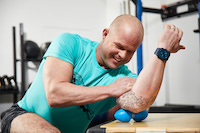
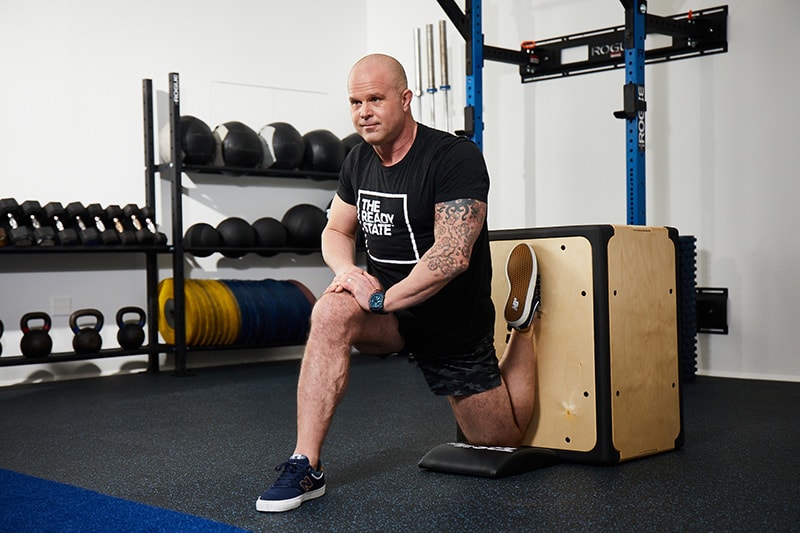
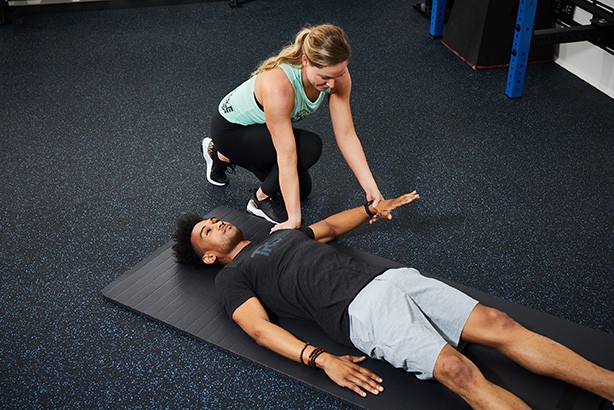
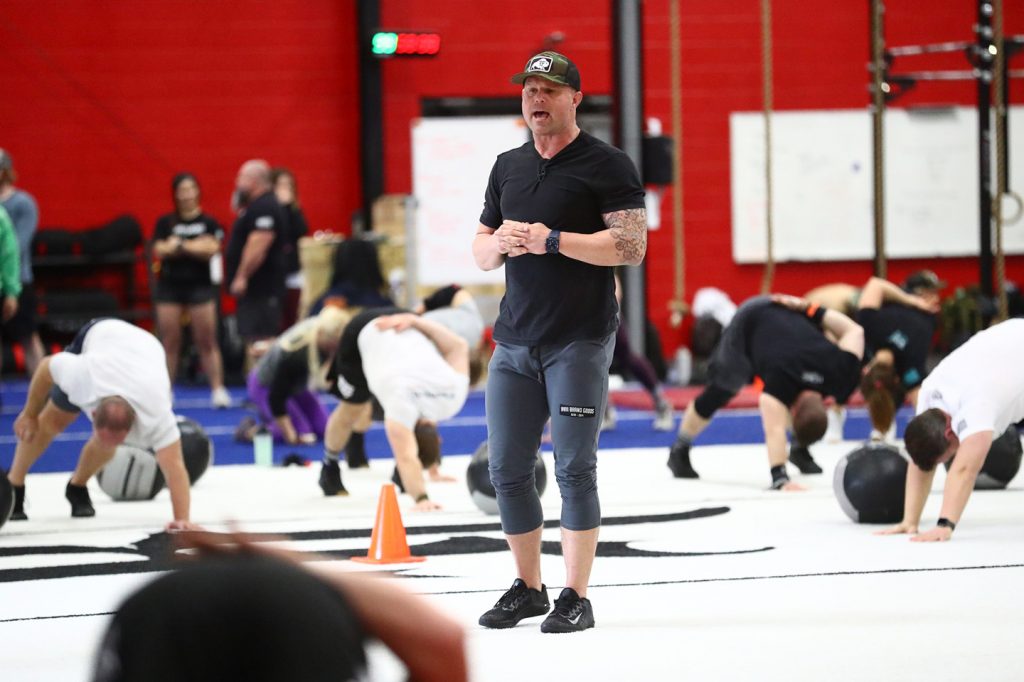
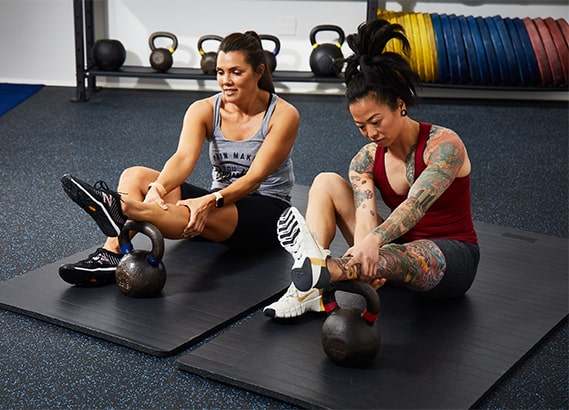
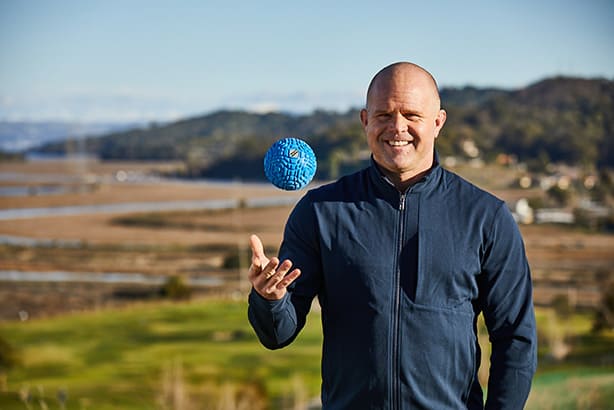
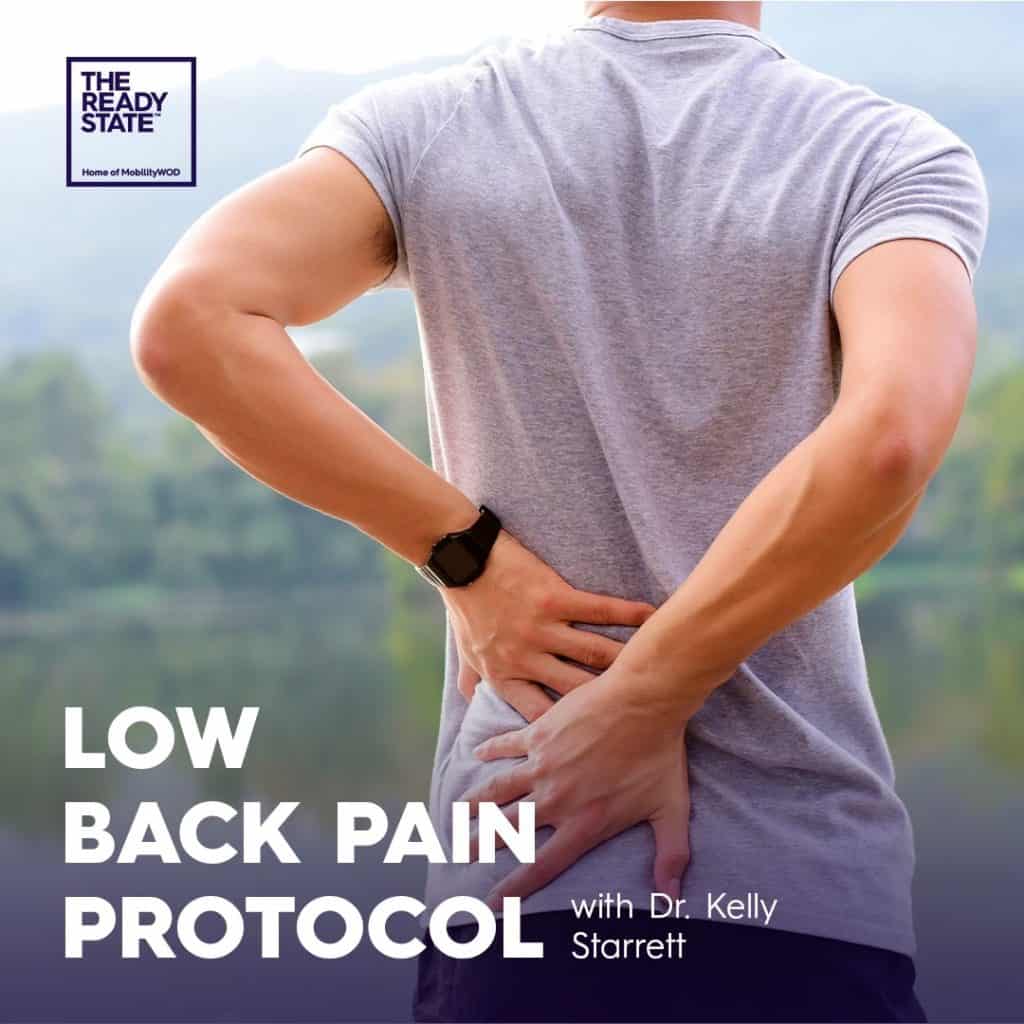
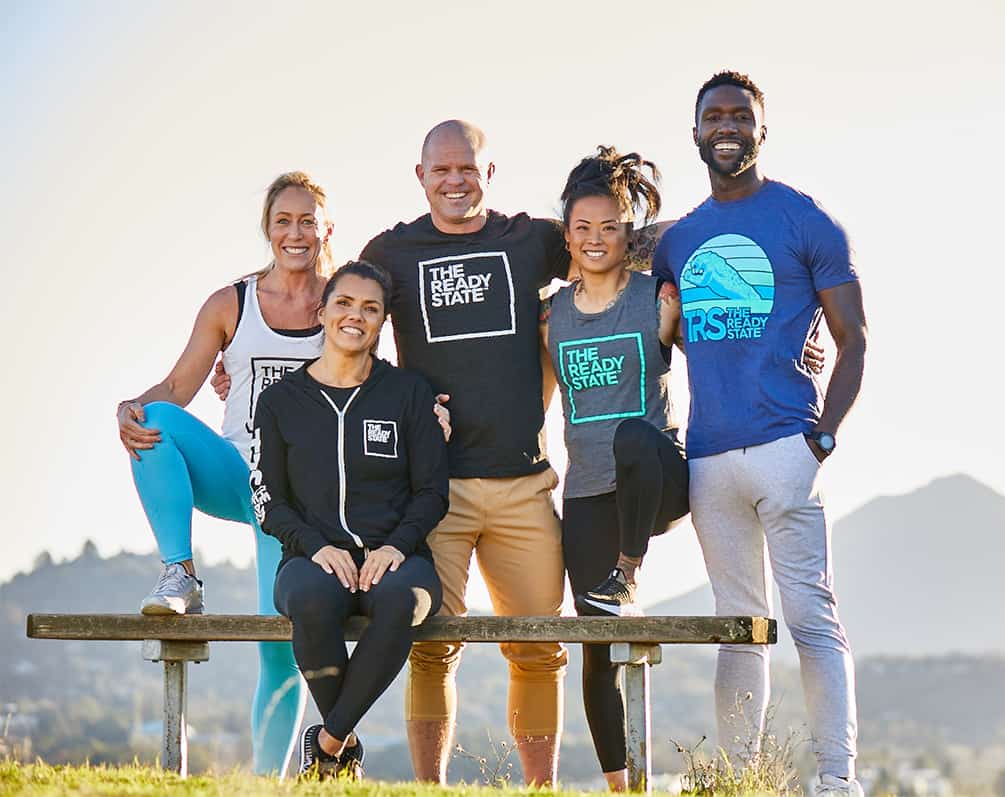
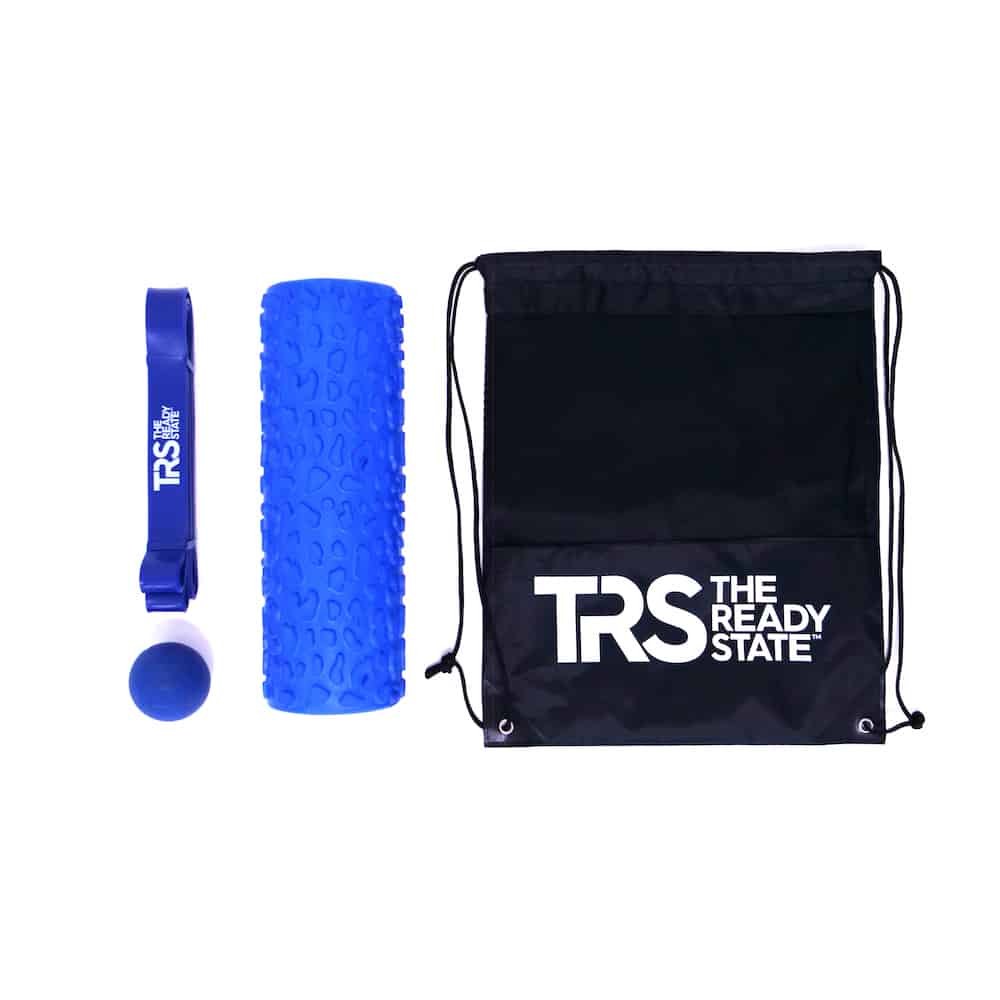
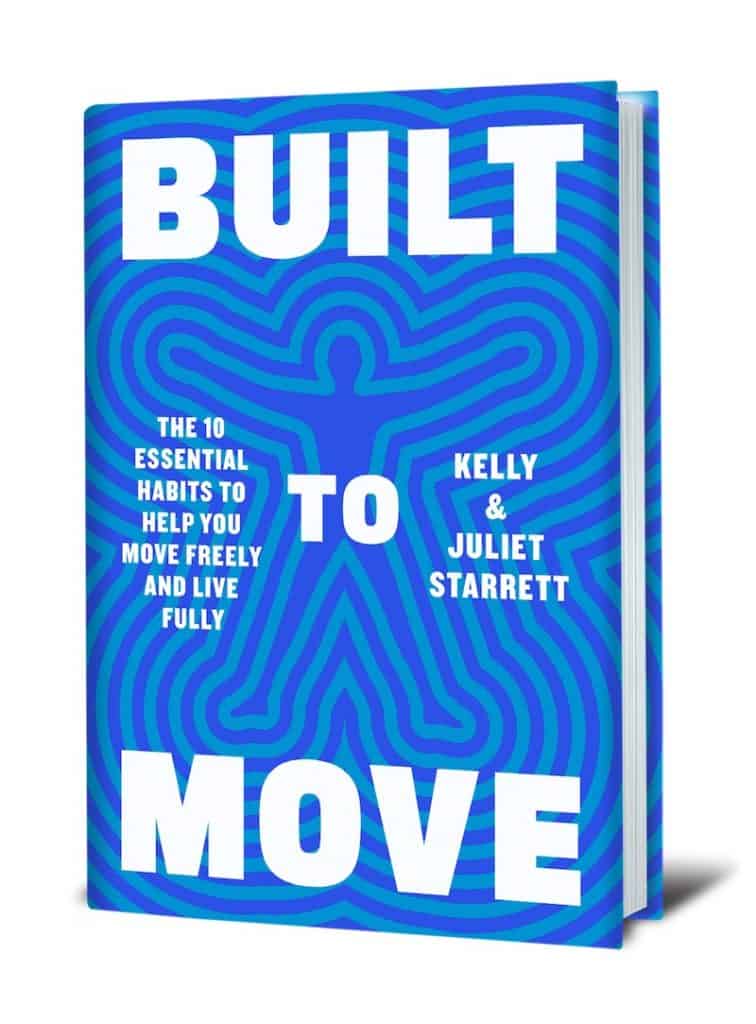
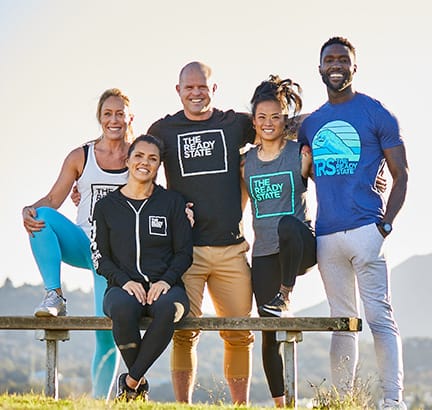
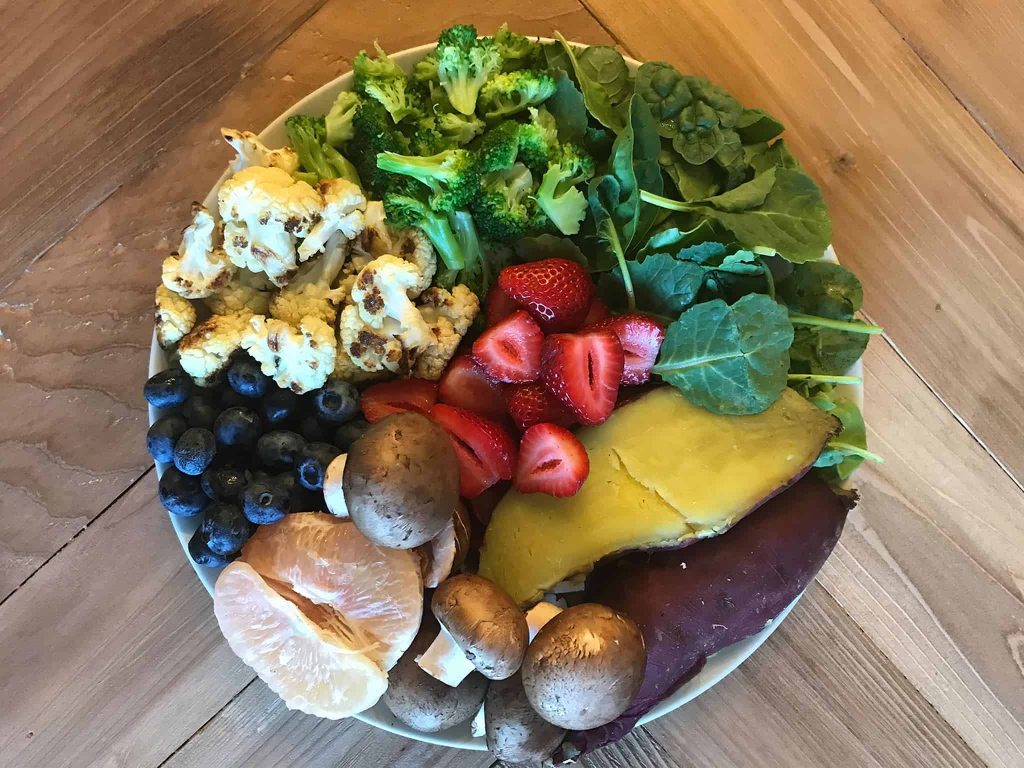
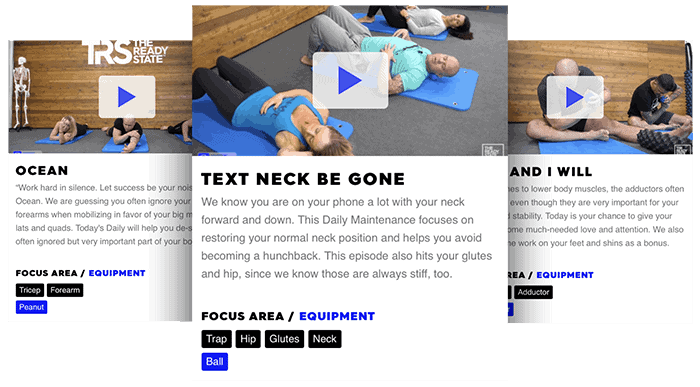






TRS Virtual Mobility Coach
Guided mobilization videos customized for your body and lifestyle.
FREE 7-Day Trial